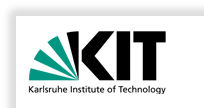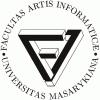Jeremy Bradley (Imperial College London, UK)
Ivana Černá (Masaryk University, Czech Republic)
Martin Fränzle (University of Oldenburg, Germany)
Lars Grunske (Swinburne University of Technology, Australia)
Ludovic Henrio (INRIA Sophia Antipolis, France)
Holger Hermanns (Universität des Saarlandes, Germany)
Jan Kofroň (Charles University in Prague, Czech Republic)
Samuel Kounev (University of Karlsruhe, Germany)
Heiko Koziolek (ABB Research Ladenburg, Germany)
Ralf Küsters (Universität Trier, Germany)
Markus Lumpe (Swinburne University of Technology, Australia)
Florian Matthes (Technische Universität München, Germany)
Raffaela Mirandola (Politecnico di Milano, Italy)
Iman Poernomo (King's College London, UK)
Ralf Reussner (University of Karlsruhe, Germany)
Antonino Sabetta (SAP Research, France)
Cristina Seceleanu (Mälardalen University, Sweden)
PC co-chairs:
Barbora Bühnová (Masaryk University, Czech Republic)
Jens Happe (SAP Research, Germany)





